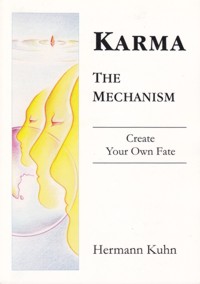
Duhkha shoka tapakrandana vadha paridevananyatma parobhayasthany asadvedyasya (11)
- Enjoying and prolonging pain, painful emotions or suffering
- enjoying and prolonging feelings of grief, sadness, remorse, shame and commiseration
- intentionally depriving others of their vitality and
- lamenting openly to attract sympathy
attracts karma that produces a negative (painful) feeling of life - irrespective if we induce this in ourselves or in others. (11)
- Pain means bodily pain as well as painful emotions.
- Sadness and grief is the separation from a being to whom we feel attached, or to an object we regard as useful, desirable, or whose presence we deem essential.
- Shame (remorse) is the experience of rejection, degradation, repentance and the feeling of guilt.
- Commiseration is a feeling of attractive sadness we direct towards ourselves or others. It wants to partake in a real or imagined misfortune of ourselves or others through an additional negative feeling - commiseration.
- Intentionally depriving others of their vitality means all activities that prevent other beings from fully unfolding their life, their sense-organs, vitality and respiration.
- Lamenting is piteous public moaning with the intention to arouse the compassion of others to secure their help and sympathy (i.e. their energy).
The theme of this sutra is pain and painful feelings. The examples mentioned in the sutra only illustrate the subject, a complete listing is not intended.
As long as we still possess karma of this character, we cannot prevent pain and painful feelings to occur. Yet all actual experience of pain only indicates that this particular part of our 'pain'-karma is now in the process of being removed. The activation dissolves it. It ceases to bind us and will never bother us again. An attitude of equanimity ensures that the actual manifestation of negative karma will not bind further (pain-) karma of the same kind.
If we want to control this process, it helps to distantly observe and impartially examine the real cause behind a particular painful feeling. Very often we arbitrarily project the 'cause' for painful feelings onto an object or being that is only accidentally present in our environment and not in any way connected to the dissolving karma.
If we e.g. stumble over a brick in our path and get hurt, we usually impulsively blame the brick, the person or the circumstances that put the obstacle there. Yet it is basically our own inattention that made us experience pain. As long as we continue to blame outside factors, we will not realize that we need to be more careful next time. As long as we take our painful fall not as a warning to become more aware of our environment, we inevitably lay the ground for further negative experiences.
In this situation it helps to contemplate whether we need to react in the first place. Often it is only our fellow people who expect us to act in a particular way. If instead we decide to follow alternative (positive) lines of thoughts or action we cut painful processes to their shortest possible time.
Once we understand how karma activates, we should have no need to prolong the cycle of (negative) emotions by indulging in further, similarly (negative) emotions that will only attract new karma of the same kind.
Yet if we enjoy (negative) experiences and prolong or amplify them by emotions like rage (anger), arrogance (pride), the intention to deceive others or addiction (greed), our very own reaction will bind us anew to the theme the activated karma stimulated.
We should not underestimate how attractive painful feelings can be - though most of us would vehemently deny this when asked directly. Yet how often do we dwell on feelings of hurt like 'They are going to see how little they will accomplish without me!', or take pleasure in heroic sadness like 'They don't ever notice how much I am doing for them!'. How often do we enjoy telling others of our sicknesses and hardships or show great interest in their misfortunes and troubles. Pain is a stimulant. If positive experiences are lacking, pain might just infuse our life with the very excitement and drama we crave.
It certainly is a very personal decision for how long and to what extent we want to experience feelings of hurt. But dwelling on them neither removes their original cause, nor does it help us to find our way out of our predicament.
Rage (anger), arrogance (pride), the intention to deceive others and greed (addiction) can also trigger intense painful emotions. As long as we are unaware that these emotions also attract pain, we are in danger of unwittingly attaching pain-producing karma to our consciousness.
 Hermann Kuhn
Hermann Kuhn
